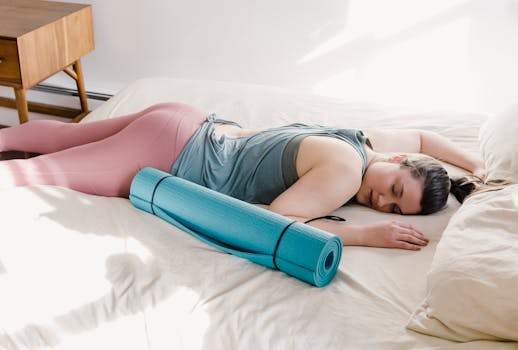
Creating a Balanced Sleep Routine for Better Rest
Creating a balanced sleep routine is crucial for achieving better rest and improving overall health and well-being. Creating a balanced sleep routine involves establishing a consistent sleep schedule, creating a sleep-conducive environment, and developing a bedtime routine that signals the body that it’s time to sleep. In this article, we will discuss the importance of sleep, the benefits of a balanced sleep routine, and provide tips on how to create a sleep routine that works for you.
Why is Sleep Important?
Sleep is essential for physical and mental restoration. During sleep, the body repairs and regenerates damaged cells, builds bone and muscle, and strengthens the immune system. Sleep also plays a critical role in brain function, with research showing that sleep helps to improve cognitive function, memory, and mood. Chronic sleep deprivation has been linked to a range of health problems, including obesity, diabetes, cardiovascular disease, and depression.
Benefits of a Balanced Sleep Routine
A balanced sleep routine can have a significant impact on overall health and well-being. Some of the benefits of a balanced sleep routine include:
- Improved sleep quality: A consistent sleep schedule helps to regulate the body’s internal clock, leading to improved sleep quality and duration.
- Increased energy: Waking up feeling rested and refreshed can boost energy levels and improve productivity.
- Enhanced cognitive function: Sleep plays a critical role in brain function, and a balanced sleep routine can help to improve cognitive function, memory, and mood.
- Better physical health: Sleep is essential for physical restoration, and a balanced sleep routine can help to reduce the risk of chronic diseases such as obesity, diabetes, and cardiovascular disease.
Creating a Sleep-Conducive Environment
Creating a sleep-conducive environment is essential for improving the quality of sleep. Some tips for creating a sleep-conducive environment include:
- Keep the bedroom cool: A cooler bedroom can promote better sleep, with the ideal temperature ranging from 60-67 degrees Fahrenheit.
- Invest in a comfortable mattress: A comfortable mattress can help to improve sleep quality and reduce back pain.
- Use blackout curtains: Blackout curtains can help to block out light and reduce noise, creating a sleep-conducive environment.
- Minimize distractions: Turn off electronic devices such as TVs, computers, and smartphones at least an hour before bedtime to minimize distractions and promote relaxation.
Establishing a Bedtime Routine
Establishing a bedtime routine can help to signal the body that it’s time to sleep. Some tips for establishing a bedtime routine include:
- Develop a relaxing pre-sleep routine: Engage in relaxing activities such as reading, meditation, or yoga to help promote relaxation and reduce stress.
- Stick to a consistent sleep schedule: Go to bed and wake up at the same time every day, including weekends, to help regulate the body’s internal clock.
- Avoid stimulating activities before bedtime: Avoid stimulating activities such as exercise, watching TV, or scrolling through electronic devices at least an hour before bedtime.
- Get ready for bed: Engage in activities that signal the body that it’s time to sleep, such as brushing teeth, changing into pajamas, and turning off lights.





